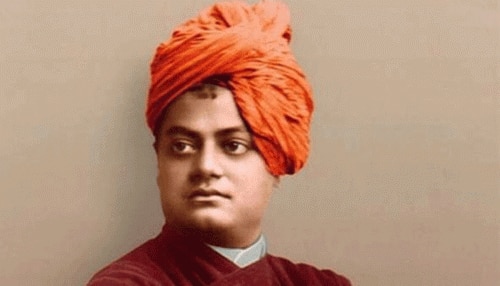- News>
- Spirituality
Swami Vivekananda - One of India`s greatest spiritual gurus

Vivekananda, addressed the audience at the Art Institute of Chicago on September 11, 1893
Born as Narendranath Dutta, Swami Vivekananda was a disciple of one of Indian greatest spiritual gurus Ramakrishna Paramhansa.
Interestingly, Vivekananda, who is now popular across the globe for his teachings and philosophies, had opposed his ‘Guru’ Ramakrishna’s views and his approach towards spirituality.
In the beginning, Vivekananda dismissed Ramakrishna’s vision as "mere figments of imagination" and "hallucinations". He opposed idol worship and did not appreciate the idea of Advaita Vedanta. But destiny had a different plan. Narendranath subsequently got attracted to Ramakrishna's philosophies. And the day he learnt of the latter's greatness, life took its own course. Narendra had received the spiritual calling.
In a short span of time, his noble spiritual endeavours spread far and wide. However, his teachings had an everlasting impact.
Today, on his death anniversary (Vivekananda breathed his last on July 4, 1902), here's taking a look at what transformed the world's perception about Indian philosophy and spirituality.
Vivekananda, addressed the audience at the Art Institute of Chicago on September 11, 1893, in the Parliament of the World's Religions, and began his speech by saying: "Sisters and brothers of America!".
The audience was taken by surprise. This compassionate gesture commanded a standing ovation from the crowd of 7000 for about two minutes.
Such was the aura of his saint-like personality and charisma! His speech in Chicago stunned the audience as he spread the essence of Indian philosophies to the world. His words echoed the sentiments of people from varied religious backgrounds and attracted attention from one and all. He thus took India's spiritual heritage abroad.
